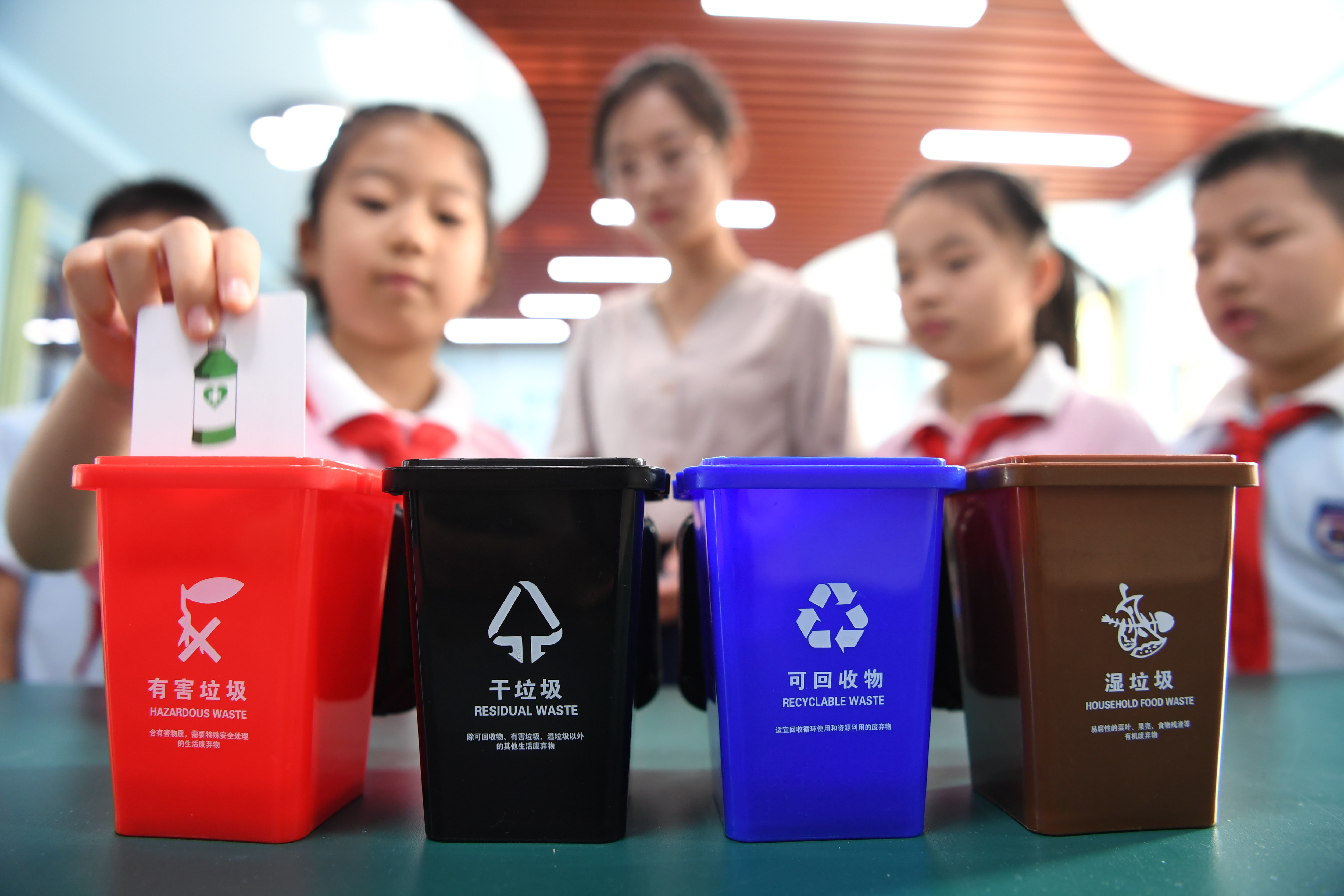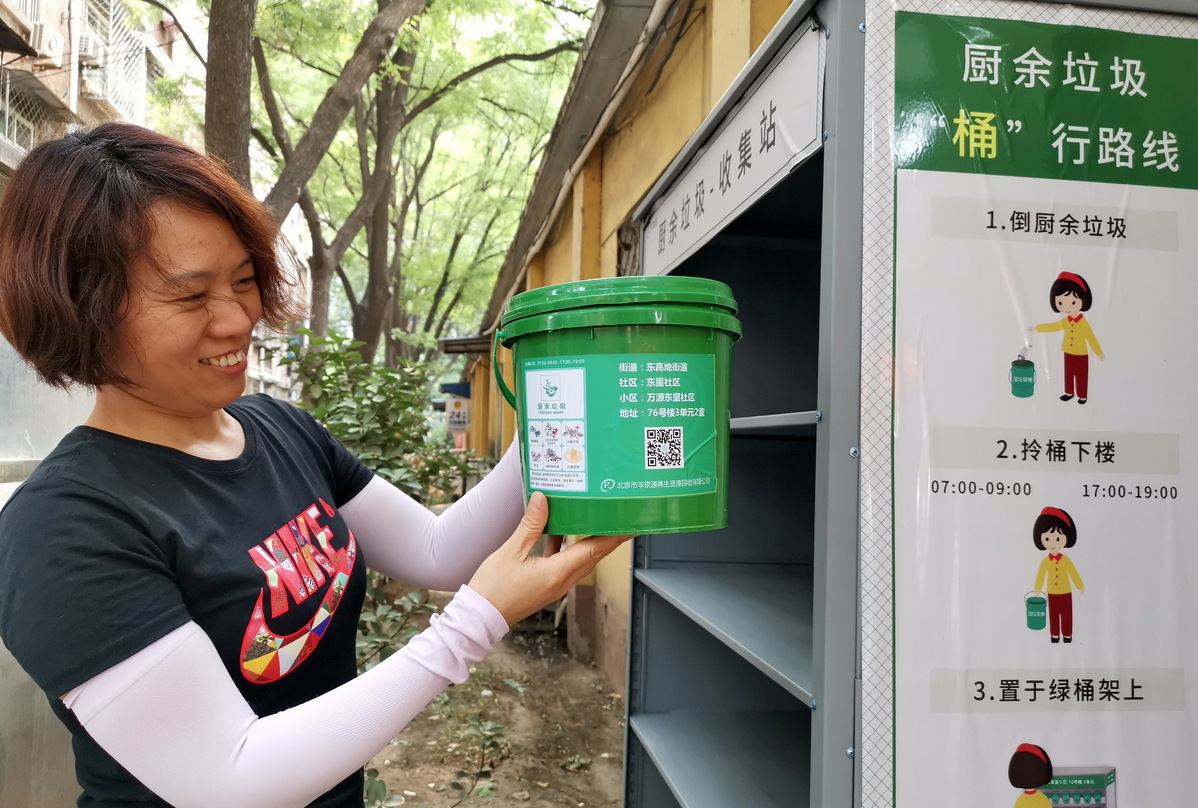
From the People's Daily App.
This is Story in the Story.
A total of 237 cities at the prefectural level or above in China have adopted waste sorting schemes as the country continues to embrace the green lifestyle, authorities said.
Waste sorting has been implemented in 53.9 percent of residential communities in the 46 cities required to carry out mandatory waste sorting by a 2017 nationwide plan, among which 14 cities have seen more than 70 percent of neighborhoods following through on the practice, according to the Ministry of Housing and Urban-Rural Development (MHURD).
At the same time, Beijing is formulating rules on waste transportation and setting standards for waste transportation vehicles. The city also released a draft regulation on waste sorting, on which public feedback was encouraged.
And the Shanghai municipal government has launched a "Green Account" app which aims to encourage garbage sorting by offering incentives to residents.
Today’s Story in the Story looks at how China is moving ahead with waste sorting as it plans to have a nationwide management system in place by 2020

Pupils take part in a garbage sorting game at Jianping Experimental Primary School in Hefei, capital of east China's Anhui Province, July 11, 2019. (Xinhua: Liu Junxi)
30 cities across China have rolled out waste sorting regulations, and 16 more are mulling legislature on the matter.
The MHURD reclassified residential waste from eight categories to 11 in a revised standard for waste sorting and launched a mini-app accessible by smartphone to promote the new classification.
China pledged to establish a basic system of laws and regulations on waste sorting by the end of 2020.
Some pilot waste sorting areas in the Chaoyang and Dongcheng districts of Beijing have been taking part in trials of classified waste transportation using specialized vehicles.
“Kitchen waste is in the charge of third-party companies, while property companies take charge of other refuse. Varied types of waste won’t be mixed, since specialized vehicles take responsibility for specified types of waste,” said Liu Jie, manager of the waste sorting project in the Shuangjing area of Chaoyang district.
Chaoyang district has a total of more than 200 waste transfer stations. In the future, when vehicles loaded with garbage enter the station, a smart system will be able to read the label on the vehicle and tell its weight via a sensor.
“Currently, temporary sites to collect kitchen waste containers have been set aside in each community, basically near the gate, so the containers can be taken away easily,” said Li Tao, deputy director of the grid center at Chongwai street.

A community worker puts a bucket containing kitchen waste on a designated shelf in Beijing on June 29, 2019. (Photo: Xinhua)
A supervisory system has been established in this area. Via scanning the barcode on each container, the source, weight of a container and other information will be gathered into the supervisory system.
Other information, such as whether a community, an institute or a catering enterprise has gotten their kitchen waste cleaned away and whether the collected waste meets standards will be presented on the supervisory map in real-time, according to Chen Xuwei, project manager of the developing and operating company of the system.
“If a place hasn’t cleared up its waste for multiple days, or its waste sorting is below standard, law enforcement departments will investigate and ask it to rectify its practices,” Chen said.
Meantime, the Shanghai government’s Green Account app aims to encourage garbage sorting by offering incentives to residents.
"Garbage is not a small problem," said Chang Jiwen, deputy director of the resources and environmental policy research institute of the Development Research Center of the State Council.
For decades, farmers have dumped garbage near rivers which polluted the water and soil. In cities, the ever-increasing amount of garbage has piled up at a speed which exceeds the capacities of landfills and incinerators' ability to dispose of it, threatening the environment and people's health and choking the country's development.
Liu Jianguo, an environment professor at Tsinghua University, said it took decades, or even longer, for developed countries to popularize garbage sorting. "Garbage sorting is a long-term process, and thus requires a step-by-step effort in China."
To raise people's awareness of garbage sorting, some governments have been considering the possibilities to make it mandatory alongside a series of penalties for those who do not dispose of their waste properly.
"No matter how grand our environmental protection ideas, it's important to start with baby steps, such as garbage sorting," Liu noted.
(Produced by Nancy Yan Xu, Brian Lowe, Lance Crayon and Paris Yelu Xu. Music by: bensound.com. Text from Xinhua, China Daily)


